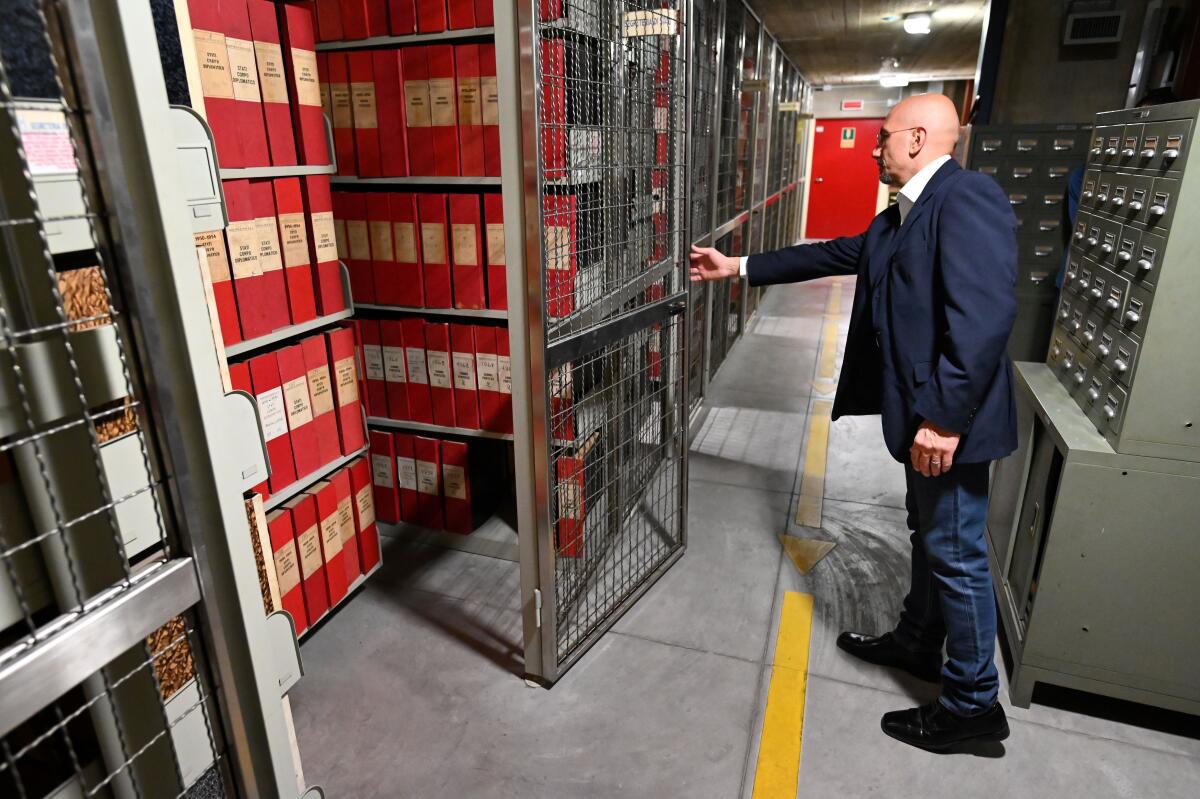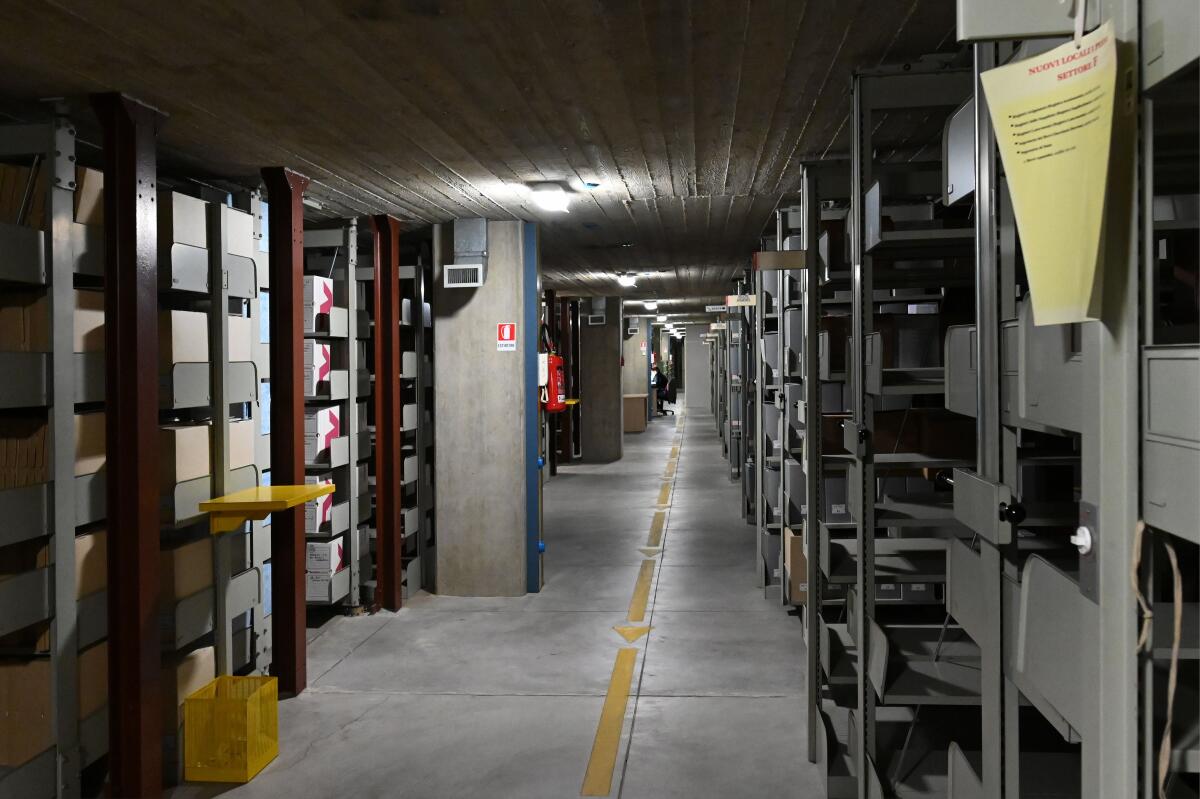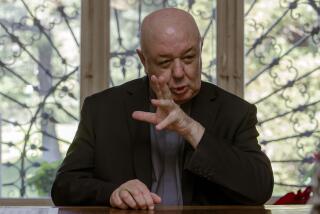Newly opened Vatican archives may give clues to Pope Pius XII’s Holocaust silence

- Share via
ROME — Sixty lucky historians stood in line at the Vatican on Monday as the tiny city-state finally opened its wartime archives on the papacy of Pius XII — millions of pages that could help explain why the pontiff kept silent during the slaughter of 6 million Jews in the Holocaust.
Vatican archivists took more than 14 years to ready the 2 million documents, which are organized in boxes that officials say stretch for 350 yards when put end to end.
The contents could help settle the question of whether Pius should be remembered for quietly hiding 4,000 Jews from the Nazis in convents and churches — knowing that denouncing Adolf Hitler would make their plight worse — or must be condemned for not speaking out as Jews were gassed in death camps.
Pius was pope from 1939 until his death in 1958. A pope’s archives are usually kept sealed for 70 years after he dies, but Pope Francis sped up their publication, announcing, “The church isn’t afraid of history.”

As historians gathered in Rome over the weekend, ready to get in line, Archbishop Paul Richard Gallagher, the Vatican’s secretary for relations with states, said Pius “emerges as a great champion of humanity, a man deeply concerned about the fate of humankind during those terrible years, somebody who was very sensitive and concerned about those who were being persecuted, somebody who was also the object of the hatred of Nazis and fascism.”
Bishop Sergio Pagano, prefect of the Vatican’s Apostolic Archives, has also suggested there is little cause for shame. “We will leave each person to draw their own conclusions but we have no fear. The good [that Pius did] was so great that it will dwarf the few shadows,” he said recently.
Historians have begged to differ. John Cornwell, the British author of the 1999 book “Hitler’s Pope,” believes Pius made it clear to Hitler he would not speak out against the Holocaust.
Before he become pope and took the name Pius XII, Eugenio Pacelli served as the Vatican’s ambassador to Germany from 1917 to 1929, witnessing the rise of Nazism before he became secretary of state in Rome.
His path has also been studied by David Kertzer, a professor of anthropology and Italian studies at Brown University, who was at the Vatican on Monday and said various archives from different Vatican departments would be ready for inspection.
“An important one is the Apostolic archive, which will have correspondence with the Vatican’s ambassador in Berlin, but also with the ambassador to the fascist government of Benito Mussolini in Italy,” he said.
Kertzer said that he was not looking to solve a mystery about Pius.
“If you want to know if this pope denounced the Nazis for killing most of the Jews in Europe, the answer is he didn’t, and there is nothing in the archive which will tell us different,” he said.
“But there is a lot we need to know about how decisions were made and who took them,” he added.
Kertzer gave as an example the Vatican’s lack of reaction to the Nazis’ rounding up of 1,000 Jews in Rome in October 1943 for transfer to the Auschwitz concentration camp.
“We know the pope was upset and we know he knew they would be killed,” he said. “He had his secretary of state summon the German ambassador and tell him he was unhappy.”
“We also already know that the ambassador replied that the order came from very high up, adding that the Vatican could lodge a complaint, even if it would displease people. The secretary of state effectively responded, ‘No, we’ll leave it to you.’”
“So we know what Pius did and didn’t do. I would like to know in this case what his close advisors were suggesting at the time,” he said.
Kertzer said he also wanted to know more about why Pius did not oppose the 1938 racial laws that were introduced by Mussolini and ejected Jews from public life. “I will be looking to see if people in the Vatican were urging him to take action, whether there was debate,” he said.
“The Nazi regime was persecuting the Catholic Church in Germany and in occupied countries,” he said. “Pius had no love for Hitler and saw his role as defending the church. Other issues were lamentable but they weren’t his responsibility.”
More to Read
Sign up for Essential California
The most important California stories and recommendations in your inbox every morning.
You may occasionally receive promotional content from the Los Angeles Times.













